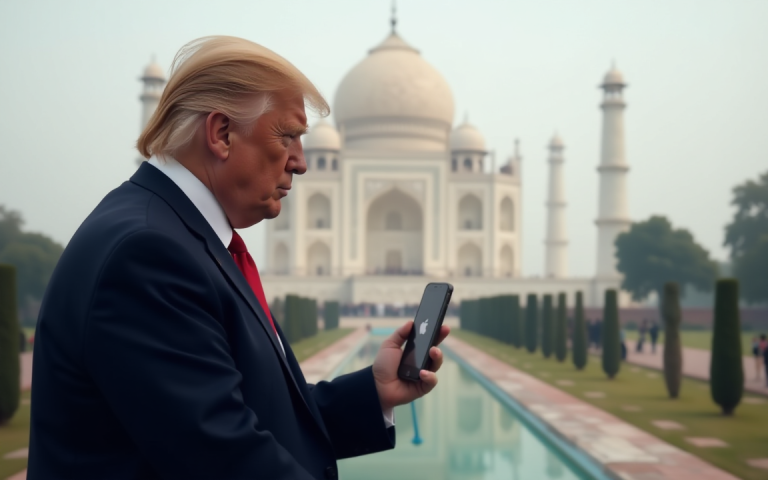US President Donald Trump has urged Apple to build more of its products within the United States rather than expanding production in India.
His remarks come shortly after Apple reaffirmed its commitment to invest $500 billion in the US economy—a pledge originally announced in February.
Trump criticised the tech giant’s overseas strategy during a speech on Thursday, highlighting concerns over its deepening involvement in India and long-standing reliance on China.
Apple has been steadily shifting some of its supply chain to India, with the goal of producing 25% of its global iPhone output in the country over the next few years.
The move aligns with the company’s strategy to reduce its dependence on Chinese manufacturing, which currently handles approximately 90% of all iPhone assembly.
However, Trump’s comments suggest that this diversification effort could draw political resistance if it means fewer jobs and investments in the US.
Trump presses Apple on India production shift
Trump recounted a recent exchange with Apple CEO Tim Cook, in which he expressed dissatisfaction with the company’s overseas expansion plans.
Trump said he had reminded Cook of his administration’s favourable treatment of Apple in the past, including tax breaks and regulatory concessions.
He criticised Apple’s continued growth in China and now India, warning that he did not want Apple “building in India” and urging the company to build “here”—referring to the US.
His comments reflect growing concerns within certain political factions about the offshoring of American tech manufacturing.
While Apple has maintained that its international production strategy is based on efficiency and supply chain resilience, the president’s remarks spotlight how global trade policies and national employment priorities are becoming increasingly intertwined with tech supply chains.
Tariff disputes and trade talks with India
Trump also took aim at broader US-India trade relations. While discussing Apple’s expansion in India, he noted that India had offered the US a zero-tariff agreement on certain goods, calling India “one of the highest tariff nations in the world.”
In April, Trump imposed a 26% reciprocal tariff on Indian imports, which has been temporarily lowered and is set to be reviewed in July.
The trade tensions emerge at a time when both nations are also negotiating deeper economic partnerships in areas such as defence, semiconductors, and digital infrastructure.
Apple’s growing footprint in India may be viewed both as a commercial strategy and a geopolitical calculation, especially with Foxconn, Apple’s main assembly partner, securing approval this week to build a semiconductor plant in India in partnership with HCL Group.
US production is still limited, despite AI expansion
Despite the $500 billion US investment commitment, Apple’s domestic manufacturing remains limited.
The company produces the Mac Pro in the US and recently announced the construction of a server manufacturing facility in Texas for Apple Intelligence, its artificial intelligence division.
However, experts argue that relocating iPhone production to the US would significantly increase the retail cost of the product.
Estimates suggest a US-made iPhone could cost between $1,500 and $3,500 due to higher labour and component costs.
Trump insisted Apple would be “upping” its US production soon, but no further details were provided. Apple has not yet publicly responded to Trump’s latest statements.
The post Trump urges Apple to prioritise US manufacturing over India appeared first on Invezz

